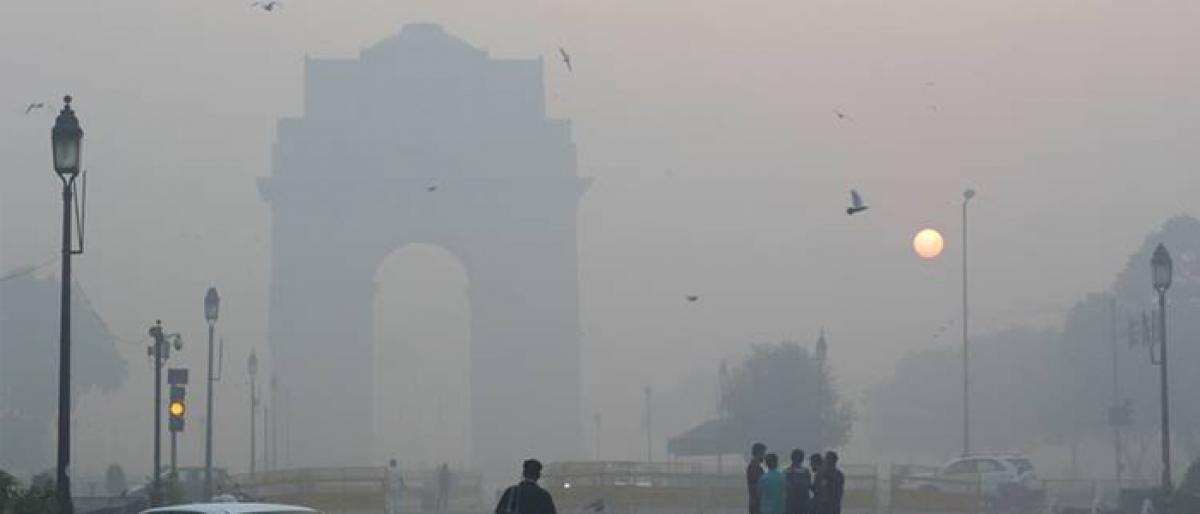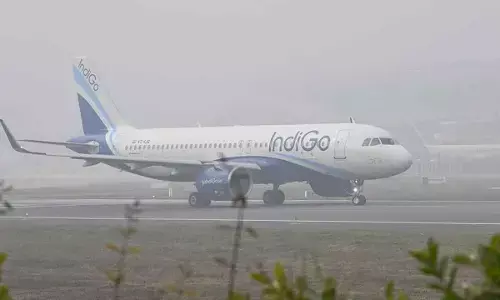Air quality swings between poor, very poor

Delhis air quality continued to oscillate between poor and very poor categories Saturday due to increased pollutant holding capacity of air after rainfall, authorities said The overall air quality index AQI was recorded at 308, which comes under very poor category, according to the Centrerun System of Air Quality and Weather Forecasting SAFAR
New Delhi: Delhi's air quality continued to oscillate between 'poor' and 'very poor' categories Saturday due to increased pollutant holding capacity of air after rainfall, authorities said. The overall air quality index (AQI) was recorded at 308, which comes under 'very poor' category, according to the Centre-run System of Air Quality and Weather Forecasting (SAFAR).
Central Pollution Control Board (CPCB) data showed the overall AQI at a 'poor' 269. Six areas in Delhi recorded 'very poor' air quality and 26 recorded 'poor' air quality, according to the data.
On Saturday, the PM2.5 — particles in the air with a diameter of less than 2.5 micrometres — level was recorded at 125, while the PM10 level was recorded at 238, according to Central Pollution Control Board data. Ghaziabad, Faridabad, Noida and Greater Nodia all recorded poor air quality while Gurgaon recorded moderate air quality, according to data.
An AQI between 0 and 50 is considered 'good', 51 and 100 'satisfactory', 101 and 200 'moderate', 201 and 300 'poor', 301 and 400 'very poor', and 401 and 500 'severe'. Delhi's air quality is fluctuating between 'poor' and 'very poor' and it is expected to be in the 'very poor' category in the next two days, the SAFAR said in a report.
The SAFAR said: "Wind speed is quite good for dispersion of pollutants which is keeping pollution in check". "Fire counts from stubble burning declined significantly and hence have negligible impact," it said.
Delhi's air quality showed significant improvement on Wednesday and Thursday after rains washed away the pollutants, but the rainfall also led to increased air capacity to hold pollutants, the SAFAR said.














